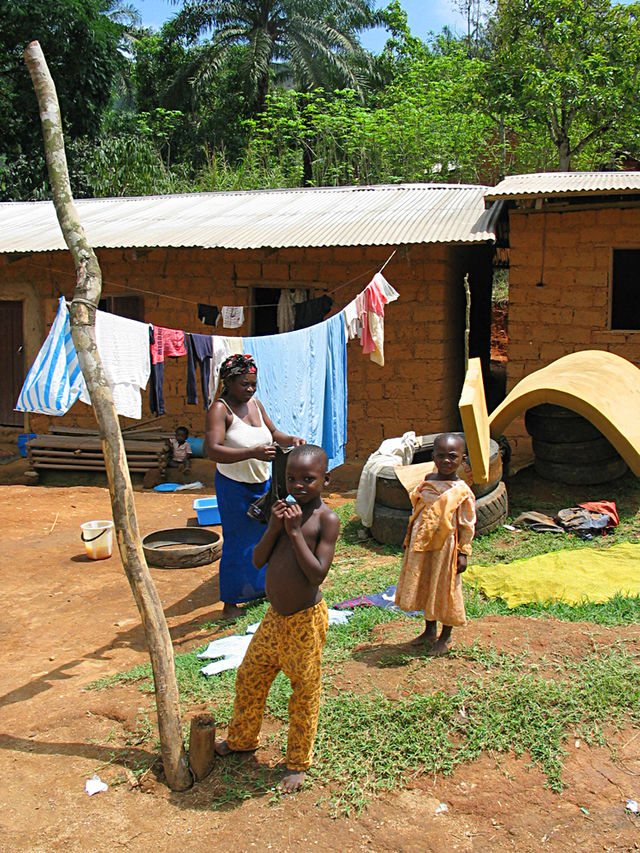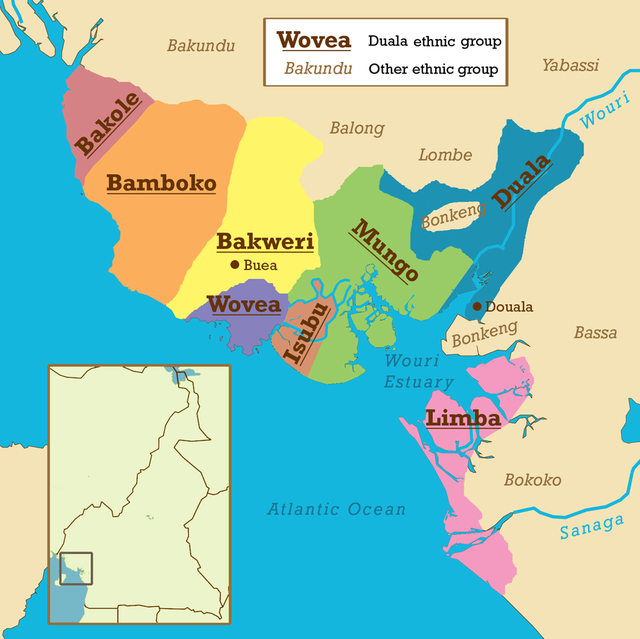Top Qs
Timeline
Chat
Perspective
Demographics of Cameroon
From Wikipedia, the free encyclopedia
Remove ads
The demographic profile of Cameroon is complex for a country of its population. Cameroon comprises an estimated 250 distinct ethnic groups, which may be formed into five large regional-cultural divisions:
- western highlanders (Semi-Bantu or grassfielders), including the Bamileke, Bamum (or Bamoun), and many smaller Tikar groups in the Northwest (est. 38% of total population);
- coastal tropical forest peoples, including the Bassa, Duala (or Douala), and many smaller groups in the Southwest (12%);
- southern tropical forest peoples, including the Beti-Pahuin, Bulu (a subgroup of Beti-Pahuin), Fang (subgroup of Beti-Pahuin), Maka, Njem, and Baka pygmies (18%);
- predominantly Islamic peoples of the northern semi-arid regions (the Sahel) and central highlands, including the Fulani (French: Peul or Peuhl; Fula: Fulɓe) (14%); and
- the "Kirdi", non-Islamic or recently Islamic peoples of the northern desert and central highlands (18%).
The Cameroon government held two national censuses during the country's first 44 years as an independent country, in 1976 and again in 1987. Results from the second head count were never published. A third census, expected to take years to produce results, began on November 11, 2005, with a three-week interviewing phase. It is one of a series of projects and reforms required by the International Monetary Fund as prerequisites for foreign debt relief. The first results were published in 2010.[1]

Remove ads
Population
Summarize
Perspective

According to the 2022 revision of the World Population Prospects[2][3] the total population was 27,198,628 in 2021, compared to only 4 466 000 in 1950. The proportion of children below the age of 15 in 2010 was 40.6%, 55.9% was between 15 and 65 years of age, while 3.5% was 65 years or older.[4]
Population Estimates by Sex and Age Group (01.I.2010) (Data refer to national projections.):[5]
Population Estimates by Sex and Age Group (01.VII.2019) (Source: Population projections and estimates of priority targets for the various health programs and interventions, National Institute of Statistics (2016).):[6]
Demographic and Health Surveys
Total Fertility Rate (TFR) (Wanted Fertility Rate) and Crude Birth Rate (CBR):[7]
Fertility data as of 2011 (DHS Program):[8]
Remove ads
Vital statistics
Summarize
Perspective
Registration of vital events is in Cameroon not complete. The Population Departement of the United Nations prepared the following estimates.[9]
View source data.
View source data.
View source data.
View source data.
Remove ads
Ethnic groups


Languages

There are 24 major African language groups in Cameroon; additionally, English and French are official languages. Cameroonian Pidgin English is also widely spoken.
Peoples concentrated in the Southwest and Northwest Provinces—around Buea and Bamenda—use standard English and Cameroonian Pidgin English, as well as their local languages. In the three northern provinces—Adamawa, North, and Far North—either French or Fulfulde (the language of the Fulani) is widely spoken. Elsewhere, French is the principal second language, although pidgin and some local languages such as Ewondo, the dialect of a Beti clan from the Yaoundé area, have a wide currency. In Far North Region the northernmost constituent province of Cameroon, Mafa Language Arab Shuwa (an Arab dialect) and is spoken by the Baggara Arabs (also called Arab Shuwa).[12]
Indigenous languages of Cameroon include:

Remove ads
Religion
Roman Catholic 38.3%, Protestant 25.5%, other Christian 6.9%, Muslim 24.4%, animist 2.2%, other 0.5%, none 2.2% (2018 est.)
References
External links
Wikiwand - on
Seamless Wikipedia browsing. On steroids.
Remove ads

